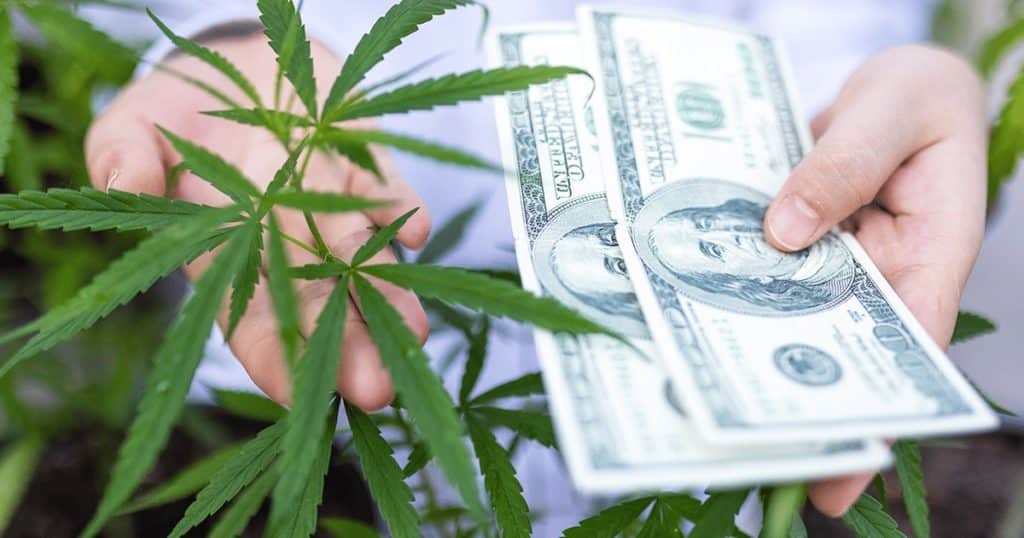Reduced insurance premiums since the legalization of medical cannabis have brought to light another aspect of prohibitionist arguments that is unfounded. Many anti-cannabis movements like to push the narrative that cannabis degrades motor skills and cognition leading to impaired driving, however, as more and more people make the switch from alcohol to cannabis with legalization, fewer accidents and fatalities have been reported leading to a decrease in insurance premiums.
Legal Cannabis And Potential Countrywide Savings
A recent study – expanding on prior research that indicates a connection between a decrease in unsafe driving and cannabis reform – has found that auto insurance premiums have lowered since the legalization of cannabis in the States.
According to the Health Economics study, premiums have decreased by an average of $22 per year, additionally, the authors of the study believe we could have reduced drunk driving to thank for this. Why might there be a decrease in drunk driving? It seems that with cannabis legalization, many people have begun to substitute alcohol use for cannabis use.
The study examined insurance data from 2014 to 2019, and while $22 a year may not seem like much – it’s certainly better than a slap to the face. The reason for the change is what’s so significant here and we may just have this substitution effect – of cannabis for alcohol – to thank for the decrease.
Better road safety appears to be linked to ready access to safe, legal medical cannabis. This is not just making our roads safer, already a huge win, but it’s also producing great cost savings for auto insurance premium payers as well as across the board for medical costs associated with car accidents.
According to the analysis, the legalization of medical cannabis has lowered auto insurance premiums in all states that have currently legalized – by $1.5 billion. The decrease can continue to lower premiums – by an additional $900 million should the outstanding prohibited states follow suit in legalizing cannabis.
This brings the total potential payment reductions for drivers to a whopping $2.4 billion – all because of legal medical cannabis.
States that have legalized medicinal cannabis have also seen annual cost savings of roughly $820 million due to less health-expense auto claims. Additionally, if cannabis is legalized throughout the nation, there may be an additional $350 million in annual savings.
There is evidence of a beneficial societal impact of medical cannabis on road and vehicle safety since auto insurance premiums are closely correlated with property damage and health outcomes, according to the study.

Study Superiority And Specifics
This study is distinctive because it focuses on developments in auto insurance, whereas most studies on the connection between legalizing marijuana and improving road safety have looked at data on traffic fatalities. However, these studies do not take into consideration the many car accidents that do not result in fatalities – meaning that they only show a piece of the puzzle, rather than the whole picture.
The new study claims that “nearly 99.5 percent of auto crashes are missed by the existing literature.” “67% of all medical expenses and property damage resulting from car accidents are covered by auto insurers. Using this lens allows us to look at the entire puzzle as a whole rather than just one piece.
Reduced annual premium rates are “stronger in locations immediately exposed to a dispensary, suggesting increased availability to cannabis drives the outcomes,” according to the zip code-based analysis.
Additionally, the study found rather large decreases in auto insurance premiums in regions where drunk driving rates before cannabis legalization were relatively high – this confirms the substitution effect observation. Where the use of cannabis over alcohol leads to safer driving.
According to co-author and Temple University researcher Cameron Ellis, “the important message is that even if driving while high is harmful, legalizing medical cannabis can make the road safer by reducing the prevalence of drunk driving to the point where it outweighs it.”
The substitution effect isn’t the only thing that we have to thank for the decrease in premiums and safer roads. With cannabis legalization, it seems that many people would rather stay at home or chill with friends having a smoke or two rather than going to hang around the local bar drinking all night.
Another alternative, a study done recently found that states that have legalized cannabis experience fewer cases of driving while intoxicated than states that have kept marijuana illegal.
The primary disadvantage of the study is that it relies solely on self-reported DUIC data, but the findings contradict both prohibitionist arguments against legalization and a recently passed congressional mandate on the focus of public awareness campaigns in the reform movement. No surprises there.

Cannabis And Impairment
Late last year, President Joe Biden signed a significant infrastructure bill with an addition pushing states that have legalized marijuana – and only those states – to promote impaired driving education. Many advocates share the same goal of discouraging driving under the influence of cannabis but believe that any public awareness campaigns on the subject should be comprehensive rather than single out states that have legalized the drug, and they have, understandably, criticized this plan.
In any case, advocates and experts have underlined that there is conflicting research regarding the connection between blood THC levels and impairment.
According to a 2019 study, for instance, drivers who exceed the legal THC limit – typically two to five nanograms of THC per milliliter of blood – are not statistically more likely to be in an accident than drivers who don’t consume marijuana. However, response times and motor performance can be impacted by cannabis use, according to Congressional Research Service findings from 2019.
Although all study participants had blood THC levels over the per se limit, another recent study concluded that smoking marijuana high in CBD had no meaningful impact on one’s ability to drive.
The issue with cannabis and impairment is determining how long after using the ‘impairment’ lasts and it is typically far less than the THC remains present in the blood and/or breath. Regardless of cannabis impairment arguments, we can’t deny the facts. And the facts are that legalized cannabis has led to better driving, safer roads, and overall cost savings in terms of both insurance premiums and medical costs associated with accidents.

Enjoyed that first hit? Come chill with us every week at the Friday Sesh for a freshly packed bowl of the week’s best cannabis news!





















